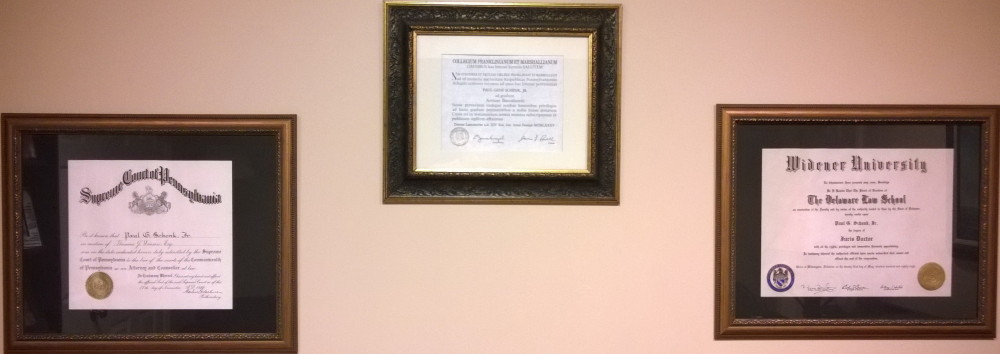THE FOLLOWING LEGAL STUDY ARTICLE POSTING IS INTENDED TO SUPPORT AWARENESS AND UNDERSTANDING. IT IS ONLY A PRELIMINARY LEVEL LEGAL STUDY ARTICLE AND IT IS NOT LEGAL ADVICE. IF THE READER SEEKS LEGAL ADVICE CONCERNING HIS OR HER PARTICULAR SITUATION, HE OR SHE SHOULD SEEK OUT AN ATTORNEY IN A LAWYER CLIENT RELATIONSHIP.
In Pennsylvania, Any Real Estate Agent Who Collects Or Attempts To Collect Back Rent On Behalf Of A Property Owner Or Landlord Is A “Debt Collector” Who Is Required To Make Specified Disclosures; Who Is Prohibited From Collecting Fees Not Expressly Allowed By Agreement Or Law; And Who Is Limited In How He Or She Can Communicate With Third Parties About The Debt .
A. Back Rent Is A “Debt” Under Pennsylvania’s Fair Credit Extension Uniformity Act And The Federal Government’s Fair Debt Collection Practices Act.
Under Pennsylvania’s Fair Credit Extension Uniformity Act ( i.e. the “FCEUA”), a debt is defined as “an actual or alleged past due obligation, claim, demand, note or other similar liability of a consumer to pay money, arising out of a single account as a result of a purchase, lease or loan of goods, services or real or personal property for personal, family or household purposes. See 73 P.S. Trade and Commerce § 2270.3. Definitions
In Romea v. Heiberger & Associates , 163 F. 3d 111 (1998), the U.S. Court of Appeals for the 2nd Circuit held that back rent is a “debt” as defined by the The Fair Debt Collection Practices Act. ( i.e. the FDCPA) under 15 U.S.C. § 1692a(5) .
Under the federal FDCPA, a “debt” means “ any obligation or alleged obligation of a consumer to pay money arising out of a transaction in which the money, property, insurance, or services which are the subject of the transaction are primarily for personal, family, or household purposes. See 15 U.S. Code § 1692a(5) – Definitions
B. Any Real Estate Agent Who Collects Or Attempts To Collect Back Rent On Behalf Of A Property Owner Or Landlord Is A “Debt Collector”. However, The Term “Debt Collector” Does Not Include A Real Estate Agent While Collecting Or Attempting To Collect Any Debt Owed Or Due Or Asserted To Be Owed Or Due To Another To The Extent Such Activity Is Incidental To A Bona Fide Fiduciary Obligation Or A Bona Fide Escrow Arrangement.
The term “debt collector” means any person who uses any instrumentality of interstate commerce or the mails in any business the principal purpose of which is the collection of any debts. However, the term does not include any person collecting or attempting to collect any debt owed or due or asserted to be owed or due another to the extent such activity is incidental to a bona fide fiduciary obligation or a bona fide escrow arrangement. See 15 U.S. Code § 1692a(6)(F) – Definitions
Under Pennsylvania’s FCEUA , a “ debt collector” is any person who is not a creditor conducting business within the Commonwealth of Pennsylvania, acting on behalf of a creditor, engaging or aiding directly or indirectly in collecting a debt owed or alleged to be owed a creditor or assignee of a creditor. The term does not include a person while collecting or attempting to collect any debt owed or due or asserted to be owed or due to another to the extent such activity is incidental to a bona fide fiduciary obligation or a bona fide escrow arrangement. See 73 P.S. Trade and Commerce § 2270.3. Definitions. “Debt Collector” (1)(2) (iii) (A)
C. Under The Federal FDCPA , “Debt Collectors” Are Required To Make Specified Disclosures; They Are Prohibited From Collecting Fees Not Expressly Allowed By Agreement Or Law ; And They Are Limited In How They Can Communicate With Third Parties About The Debt.
Anyone who attempts to collect back rent on behalf of the property owner or landlord is a “debt collector” and must abide by the rules of the FDCPA. See Romea v. Heiberger & Associates 163 F.3d 111 (1998)
Debt collectors are required to make specified disclosures, prohibited from collecting fees not expressly allowed by agreement or law, and limited in how they can communicate with third parties about the debt. See 15 U.S.C. §1692d-f.
D. If A “Debt Collector” Violates Any Of The Provisions Of The Federal FDCPA , It Shall Also Constitute An Unfair Or Deceptive Collection Act Or Practice Under Pennsylvania’s FCEUA.
It shall constitute an unfair or deceptive debt collection act or practice under Pennsylvania’s Fair Credit Extension Uniformity Act if a debt collector violates any of the provisions of the federal Fair Debt Collection Practices Act ( 15 U.S. C. 1692 et seq.)
See 73 P.S. Trade and Commerce § 2270.4.(a) Unfair or deceptive acts or practices
E. Additionally, If A Debt Collector Or A Creditor Engages In An Unfair Or Deceptive Debt Collection Act Or Practice Under The Pennsylvania FCEUA , It Shall Also Constitute A Violation Of Pennsylvania’s Unfair Trade Practices and Consumer Protection Law.
If a debt collector or a creditor engages in an unfair or deceptive debt collection act or practice under the Pennsylvania Fair Credit Extension Uniformity Act, it shall also constitute a violation of Pennsylvania’s Unfair Trade Practices and Consumer Protection Law. See 73 P.S. Trade and Commerce § 2270.5. Enforcement and penalties Unfair trade practices. (a).
_________________________________________________________
To See A Categorically Listed Archive Of Preliminary Legal Study Based Article Posts , See The Drop Down Box On This Page Or Click https://studypostlex.com/categorizedarchive/
